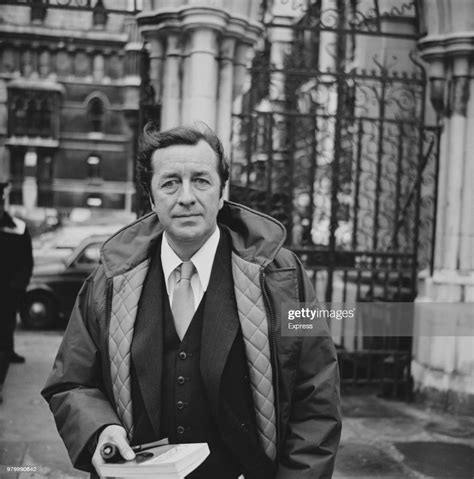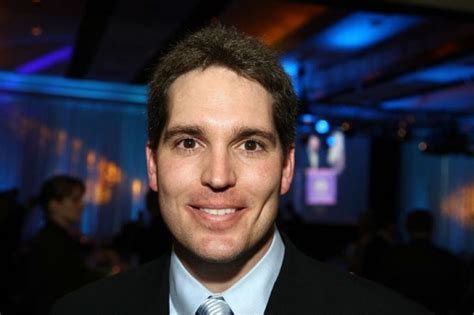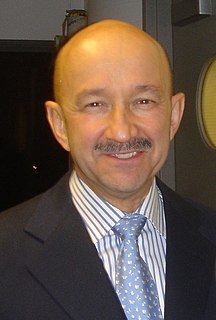A Quote by Robert Bolt
This account of him [Thomas More] developed as I wrote: what first attracted me was a person who could not be accused of any incapacity for life, who indeed seized life in great variety and almost greedy quantities, who nevertheless found something in himself without which life was valueless and when that was denied him was able to grasp his death.
Related Quotes
The man who has lived his life totally, intensely, passionately, without any fear - without any fear that has been created in you by the priests for centuries and centuries - if a person lives his life without any fear, authentically, spontaneously, death will not create any fear in him, not at all. In fact, death will come as a great rest. Death will come as the ultimate flowering of life. He will be able to enjoy death too; he will be able to celebrate death too.
The [Great] Actor is able to approach in himself a cosmic dread as large as life. He is able to go from his dread to a joy so sweet that it is without limit. Only then will the actor have direct access to the life that moves in him, which is as free as his breathing. And like his breathing, he doesn't cause it to happen. He doesn't contain it, and it doesn't contain him.
The goal in raising one's child is to enable him, first, to discover who he wants to be, and then to become a person who can be satisfied with himself and his way of life. Eventually he ought to be able to do in his life whatever seems important, desirable, and worthwhile to him to do; to develop relations with other people that are constructive, satisfying, mutually enriching; and to bear up well under the stresses and hardships he will unavoidably encounter during his life.
She couldn't think of anyone else who remotely resembled him. He was complicated, almost contradictory in so many ways, yet simple, a strangely erotic combination. On the surface he was a country boy, home from war, and he probably saw himself in those terms. Yet there was so much more to him. Perhaps it was the poetry that made him different, or perhaps it was the values his father had instilled in him, growing up. Either way, he seemed to savor life more fully than others appeared to, and that was what had first attracted her to him.
I promised I'd save him, take him home! I promised him!" . . . Thomas hugged Chuck to his chest, squeezed him as tightly as possible, as if that could somehow bring him back, or show thanks for saving his life, for being his friend when no one else would. Thomas cried, wept like he'd never wept before. His great, racking sobs echoed through the chamber like the sounds of tortured pain. (pg 358 hardback)
I tried to do everything I could to study Walt Disney. I would read every book I could on the company, and then I found out more about him as a person, as an entrepreneur, and it was just fascinating to me that this guy was able to live a great life with his family but also do these amazing things at work.
I had utterly abandoned myself to Him. Could any choice be as wonderful as His will? Could any place be safer than the center of His will? Did not He assure me by His very presence that His thoughts toward us are good, and not evil? Death to my own plans and desires was almost deliriously delightful. Everything was laid at His nail-scarred feet, life or death, health or illness, appreciation by others or misunderstanding, success or failure as measured by human standards. Only He himself mattered.
A Heavenly Master governs all the world as Sovereign of the universe. We are astonished at Him by reason of His perfection, we honor Him and fall down before Him because of His unlimited power. From blind physical necessity, which is always and everywhere the same, no variety adhering to time and place could evolve, and all variety of created objects which represent order and life in the universe could happen only by the willful reasoning of its original Creator, Whom I call the Lord God.
Achievement comes to someone when he is able to do great things for himself. Success comes when he empowers followers to do great things with him. Significance comes when he develops leaders to do great things for him. But a legacy is created only when a person puts his organization into the position to do great things without him.
Animals learn death first at the moment of death;...man approaches death with the knowledge it is closer every hour, and this creates a feeling of uncertainty over his life, even for him who forgets in the business of life that annihilation is awaiting him. It is for this reason chiefly that we have philosophy and religion.
His books were part of him. Each year of his life, it seemed, his books became more and more a part of him. This room, thirty by twenty feet, and the walls of shelves filled with books, had for him the murmuring of many voices. In the books of Herodotus, Tacitus, Rabelais, Thomas Browne, John Milton, and scores of others, he had found men of face and voice more real to him than many a man he had met for a smoke and a talk.
Revelation is necessarily limited to the first communication- after that it is only an account of something which that person says was a revelation made to him; and though he may find himself obliged to believe it, it can not be incumbent on me to believe it in the same manner; for it was not a revelation made to ME, and I have only his word for it that it was made to him.






































